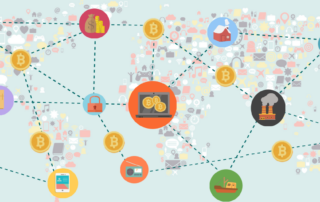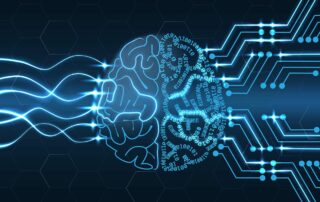Three (non-pointless) permissioned blockchains in production
It’s exactly two years since we published “Avoiding the pointless blockchain project“, a checklist of questions to ask when assessing permissioned blockchain use cases. The post obviously struck a nerve and continues to attract thousands of monthly readers on our site and others. People are still hungry for content that goes beyond the blockchain hype to assess this technology objectively.
Pressure builds as Russia struggles to define cryptocurrencies
The Bank of Russia recently held a meeting with Russian President Vladamir Putin, where the legal status of cryptocurrencies was discussed. Citing the belief that cryptocurrency legalization represents “a loss of control over the money flows from abroad," the Chairwoman of Russia’s Central Bank, Elvira Nabiullina, clarified that her organization is against any type of legalization. Earlier this month the Bank made a general announcement that revealed more of their stance on cryptocurrencies, including Bitcoin. Recalling the usual risks from fluctuating exchange rates, technical difficulties, anonymity, and the lack of a responsible issuer, the Central Bank stated clearly that its position hasn’t changed on cryptocurrencies since they declared non-state-issued currency banned in January of 2014.
Blockchain regulation in finance: Recent developments and prospects
While potentially attractive to regulators due to increased transaction security and reduced risk of manipulation, blockchain technology gives rise to difficult legal and regulatory challenges that regulators are grappling to understand. With regulations for such a new technology always in flux, DLA Piper analyzes the current regulatory approach to blockchain.
From AI to Blockchain to Data: Meet Ocean
I think it’s amazing that you can design algorithms that might have society-level impact. AI algorithms are in that category. And, AI is *fun*. Take Genetic Programming, where you write computer programs to evolve other computer programs. Moreover, AI poses exciting engineering challenges like scaling, and it asks the biggest questions, like the nature of the mind. For these reasons, AI was my first love. I started my AI reading and hacking intently in the early 90s. By 1997, I was far enough along hacking AI that people started paying me to do it. I never looked back, doing two companies and a PhD on AI.
Cryptocurrencies: Iniquitous or Misunderstood?
Bitcoin’s valuation eclipsed $4,950 earlier this month, up almost 400% from the start of the year. Then China cracked down on exchanges and JPMorgan CEO Jamie Dimon labeled the cryptocurrency a ‘fraud.’ Bitcoin recently closed at $3,650. If you crave action and volatility, this is the asset for you. But traditional capital markets professionals know very little about cryptocurrencies; more education is warranted.
The imperative for self-sovereign identification
I’m making a presentation on cybersecurity this week at our Nordic Finance Innovation meetings. This meant preparing a few new slides from scratch as I don’t have a set deck for cybercrime, and sat and started ideas just as the news dropped about the Equifax breach. You’ll all know about this by now, but over 143 million Equifax accounts were hacked during June-July 2017, including customers’ social security numbers, name, address, date of birth, driving licence and other sensitive info. In other words, all the information you need to open new accounts and access existing accounts.
Blockchain opportunities in atypical markets
As virtual currency skyrockets in value and credibility, more and more people are beginning to take a serious look at blockchain technology to disrupt various industries. Banks are already adopting the technology at a breakneck pace: a 2016 report by IBM predicts that by 2020, 66% of banks worldwide expect to be using blockchain at scale in their commercial operations.
Thomson Reuters adds Bitcoin Liquid Index (BLX) to Eikon
We are excited to announce that Thomson Reuters has added the Bitcoin Liquid Index (BLX) to its award-winning Eikon terminal. By adding a single, reliable USD price discovery tool and reference rate for Bitcoin, the Eikon terminal now extends its market data offerings beyond its traditional financial coverage and firmly enters the cryptocurrency space. The BLX gives Eikon’s growing network of professional and business subscribers a trusted live feed for gaining a competitive advantage. Thomson Reuters has led the way as one of the most relied upon sources for financial and business intelligence. Its award-winning Eikon software package connects its users with critical timely feeds from over 400 exchanges and OTC-traded markets. Over 210,000 Eikon Messenger users have access to trusted news content, data, analytics and insights, filtered to their exact needs. Available on both desktop and mobile devices, the Eikon trading software provides access to deep pools of liquidity, professional networks, expert analysis and insights on emerging and complex markets.
InsurTech’s big ticket items: machine learning on the blockchain
I don’t usually tell people that I’m a qualified expert in insurance as it’s not relevant, but I’m mentioning it today as I just presented at a private insurance event. There are lots of interesting nuances in insurance. You and I probably think it’s just that once a year renewal of our auto policy, or maybe the regular premiums we pay for life and pensions. That’s an important part of it and is a challenge as people don’t buy insurance, it has to be sold. Think about it. You don’t wake up and think “oh, I might die today! Better get some life insurance”, but you learn through advisory sales that this is what you need to do. Then there’s a whole other raft of insurance where the real money is made: commercial insurance. Insuring ships, aircraft, offices and employees is where the big-ticket policies arrive. These are more complicated, as the risks have to be calculated in more depth. Under assess the risk and the insurance company loses; over assess and a competitor might steal the business. Equally, the corporate relationship becomes important in this space, as that’s where the strength of understanding the client comes from.
Decentralized social media is peer-to-peering into the future
Social media proofs of concept on the blockchain demonstrate important value propositions of decentralized apps. In 2016, Steemit pioneered the world’s first blockchain-based decentralized social network and in my view remains one of the most important blockchain projects today. Boiled down to its simplest form, Steemit is a kind of reddit with the property that creating interesting content, or curating it effectively, will earn users real money on the platform in the form of a cryptocurrency called Steem. There is no barrier to entry. Just create an account and start earning.
Alleviating corruption and poverty with technology
It takes 16 hours to drive from Lagos to Abuja, but one hour to fly. According to Google Maps, the trip should take under 12 hours. However, police will stop you every 30 minutes or so to ask for bribes. If you don’t pay up, you risk jail or your tires being slashed. My younger brother calls it “oil money” — ancillary payments such as these grease the wheels of Nigerian society. The lack of accountability and corruption are entrenched in Nigerian society. Nigeria’s growing population of 185 million has encountered rising unemployment and violence. Youth under the age of 25 — more than 60% of the population — have been hit hardest. These are my cousins — talented and capable, with much to contribute. Society is leaving them behind.
Estonia considering ‘estcoin’ ICO for e-residents
The Estonian government is considering an Initial Coin Offering (ICO) for a cryptoasset called estcoin. The resulting sale would enable “anyone to invest in a country for the first time,” explains Kaspar Korjus, the Managing Director at e-Residency. Korjus explained that the funds could be managed through a Public Private Partnership (PPP. This would enable Estonia to invest in new technologies and innovations for the public sector, from smart contracts to Artificial Intelligence, as well as make it technically scalable to benefit more people around the world. Estonia would then serve a model for how societies of the future can be served in the digital era.
It’s all about liquidity in ICOs
A lack of liquidity will haunt the Initial Coin Offering market. The problem is that there are too many currencies. Without enough liquidity, we will see great participation by buyers with no support from market makers and no buyers for the cryptocoins that the ICO company wants to convert into flat cash.
FinTech and the world of investment banking
Some people talk about FinTech disruption and how payments and banking is being attacked and unbundled by start-ups, but we often look at banking too simplistically. Global banks and investment banks are far more complex creatures than their high street counterparts, which is why we’ve seen far less disruption in corporate, commercial and wholesale banking that we are seeing in retail, but don’t be complacent or closed here. There are things happening in the more complex areas too. For example, there’s a new clearing bank that is just an API; there’s a global trading social network, that is far more effective and fun than day trading on your own; there’s a clearing and settlement engine being built, supporting billions of transactions through blockchain technologies; there’s a whole range of crowdfunding ventures that are allowing start-ups to get started far faster and easier than ever before; equally there are reams of new firms offering SME financing support, allowing small businesses to flourish and prosper; and there’s a lot more. In fact, the landscape of change in this more specialised market of markets is massive, but often overlooked.
Blockchain: Saved by the Enterprise
Blockchain, otherwise known in capital markets as Distributed Ledger Technology (DLT), could potentially change the most fundamental foundation of capital markets: the transaction. DLT provides much needed functionality by embedding processing logic directly into contracts, decentralizing the trust needed for smooth risk transference, and bringing consensus-driven verification to transactions. DLT will have a tremendous positive impact on operational efficiency and cost overheads. DLT also will enable workflows to be created that will transform virtually all economic activity. However, standards and protocols are still being defined. Reference architectures are being contemplated and subjected to rigorous proofs of concept. And while there are now numerous production-level projects underway to bring the benefits of DLT to capital markets, significant challenges remain, given the complex technological ecosystem that is at the core of capital markets. For DLT to transform this ecosystem, it will need to operate within that ecosystem.
The blockchain infrastructure landscape: A first principles framing
How are Ethereum, IPFS/Filecoin, and BigchainDB complementary? What about Golem, Polkadot, or Interledger? I often get questions like this. So, I decided to write about how I answer those questions, via a first-principles framing. The quick answer: there’s no one magic system called “blockchain” that magically does everything. Rather, there are really good building blocks of computing that can be used together to create effective decentralized applications. Ethereum can play a role, BigchainDB can play a role, and many more as well. Let’s explore…















